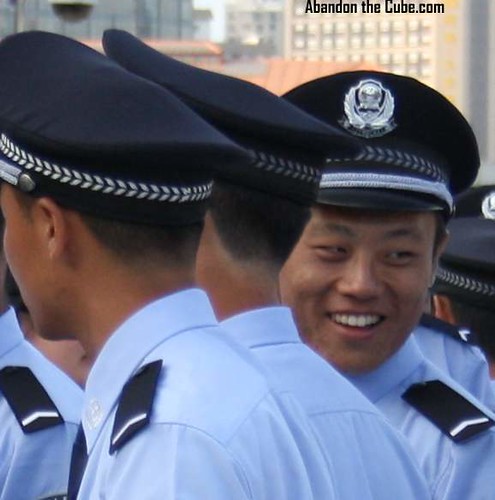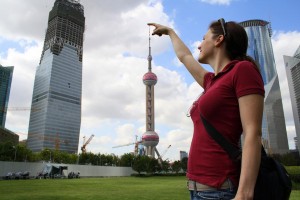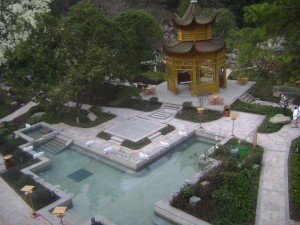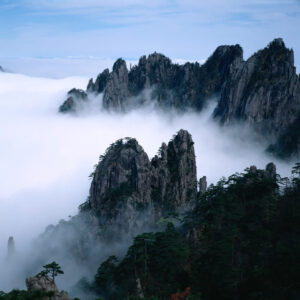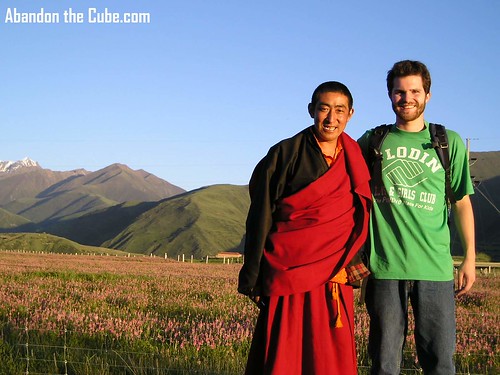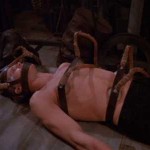We returned today from a four day trip to HuangShan, Yellow Mountain, in Anhui province, China.
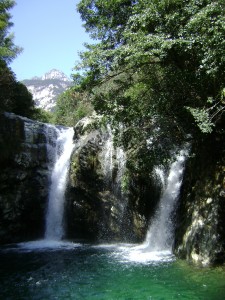
- Nine Dragon Waterfall
On Friday the 13th we boarded the nightly slow train to Anhui at 10:00pm. We were in a crowded sleeper car with about seventy other adventurers on their way to the mountain. Everyone was wearing hiking boots and had Canon cameras around their necks. Since it had been raining the past few weeks, everyone had a rain jacket strapped to their bags. We settled in and fell promptly asleep after a few games of cribbage, and listened to the sounds of our fellow cabin mates playing poker until the early morning.
At 5:00am I woke to the sounds of laughter- our cabin mates were gambling again already. I pulled out my book and read for a while before descending from the top bunk (they are three high in mini rooms of 6 beds) and found a seat along the hall where I watched the scenery change from the flat, coastal farmland around Shanghai to the rolling, rocky hills of Anhui province. We arrived at the HuangShan train station at 10:00am.
After buying our return tickets to Shanghai for the following Monday evening, we were accosted by dozens of men and women eager to sell us anything we might desire. One such promiser was a middle-aged woman who offered a ride to the base of the mountain for 15Rmb. We agreed, as this is how things are generally done around China, and hopped in the back of her 6 person mini-van. Ten minutes later the van had 10 people in it and we were bumping along at 70 miles an hour. An elderly woman with purple hair tapped Mike on the shoulder every few minutes asking his age, or my occupation, or his dental plans, or if I wanted a boy or girl child. The van stopped in a town at the base of the mountain, but several hours hike from the start of the mountain trails. We got in another mini van, the driver of which was quite possibly drunk, and took off down a winding road of switchbacks until we finally arrived, mid vomit, at the entrance to the Nine Dragon Falls. Though this was not the gate we had asked to be taken to, the falls looked beautiful so we went in after the ticket lady (all of 14) assured us we could connect with a seldom used trail to the main route.
The falls defied beauty and went into the realm of nirvana. We were alone on the trails, which were often little more than a few granite stones pointing the way, and we stopped often to feel the water, take pictures or explore areas off the path. By 2pm we were hardly half way to the halfway point, and sped up our pace a bit as we hiked through endless bamboo forests. Around 3pm we stepped off the granite path and onto a black-top road, shocked to discover that there was an auto-route up the mountain. Also at this intersection was a cable car that would deliver people and cargo to the base of the summit. As the sun was going to set soon, we hopped a ride on the cable car for 10USD.
The cable car ride was, in a word, magical. From the bamboo and palm tree waterfalls and turquoise ponds the lift heaved us up into a frozen paradise, where trees looked like crystal and sidewalks looked like glass. When we stepped off the lift a surreal feeling fell over us, and there was a long silence as we walked around touching the ice and rubbing our hands together.
We explored the various peaks around the summit until well into the evening, and then discovered that the hotels on the summit cost more than I make in a month. We walked out of each hotel a little more worried until a plump little man approached us and said “100 Rmb hostel?” to which we replied, “YES!”
The room was a cement square with a cement roof and cement floor. Four wooden beds lined the walls. In all, it was smaller than the compartment on our overnight train and had no bathroom, running water or heat. It was negative 3. We bought the whole room, which was 300Rmb, and then put all the blankets on one bed to try to keep warm. A party of hikers bought out the rest of the building and stayed up all night gambling and screaming, singing and drinking. We lay awake all night shivering, cursing and then laughing. It was easy to get out of that bed and that cement coffin of a hostel to go see the sunrise at 5:30am.
The sun peaked out over the hills and light flooded the valley in waves of orange, red and then blue. It was beautiful, except for the hundreds of other spectators who were screaming, waving bells and trying to hear their own echoes in the early morning valleys.
After a nice breakfast at the spendy hotel we packed our bags, big adieu to the stout cement square owner and set off for a day of summiting the various peaks of HuangShan.
-Posted by Lauren.
